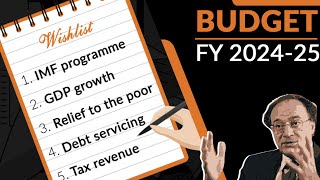To curb the smuggling of agricultural inputs into the country, the Afghan government has officially conveyed its demand to the Pakistani authorities.
"Afghanistan will need around 500,000 tons of fertiliser during this year," sources close to the Afghan embassy told Business Recorder here on Monday. The Afghan government has communicated this to Pakistan through its embassy in Islamabad, they disclosed.
Pakistan has sought the assistance of the Afghan government on the issue in view to look into possibility of urea export, as Pakistan has attained self-sufficiency in its production.
According to the sources, the fertiliser consumption in Afghanistan was never estimated due to war and civil strife continuing there for over 20 years.
The alleged smuggling of fertiliser has put Pakistan in real trouble on many occasions especially in December 2003, after the government had allowed the fertiliser firms in November to export 50,000 tons Urea.
This troublesome situation prompted the Pakistani authorities to get data about the fertiliser requirements in Afghanistan.
"Afghanistan will need around 280,000 tons of Urea and about 215,000 tons of DAP during 2004," sources said. Pakistan has always complained that Afghanistan is a major market of smuggled fertiliser.
Pakistan is self sufficient in Urea, the domestic consumption of which remains approximately at 3.9 to 4.0 million tons per year. On the other hand it imports the DAP fertiliser which is consumed at the rate of around 1.5 million tons annually.
According to the sources, the estimates indicated by Kabul will also help Pakistan reviewing the available Urea stock and allowing fertiliser corporations to export the commodity at appropriate time.
Around 340,000 tons of Urea and 127,000tons of DAP are available in the stocks at present which is sufficient for domestic consumption, according to the sources privy to the meeting of Federal Committee on Agriculture (FCA) held here on Saturday.
Rich in natural gas and encouraged by strong government incentives, Pakistan's fertiliser industry made a landmark achievement in 1998/99 with the addition of almost 1.5 million tons capacity, comprising of 1.05 million tons urea and 0.45 million tons DAP per year.
This expansion increased the total installed capacity of urea from 3.3 million tons to over 4.3 million tons given the present level of Urea consumption of about 4 million tons.
The sources, however, disclosed that Pakistan could not meet Afghanistan's fertiliser requirements and the latter, at times, could be allowed to import fertiliser from international market through Karachi port.
Some of the Afghan traders are believed to be involved in the fertiliser import via Pakistan beyond the required estimates especially when the prices go lower in the international market and the input especially the DAP is smuggled back to Pakistan.
BR100
7,583
Increased By
39.5 (0.52%)
BR30
24,238
Increased By
202.6 (0.84%)
KSE100
72,797
Increased By
207.9 (0.29%)
KSE30
23,213
Increased By
76.4 (0.33%)






















Comments
Comments are closed.